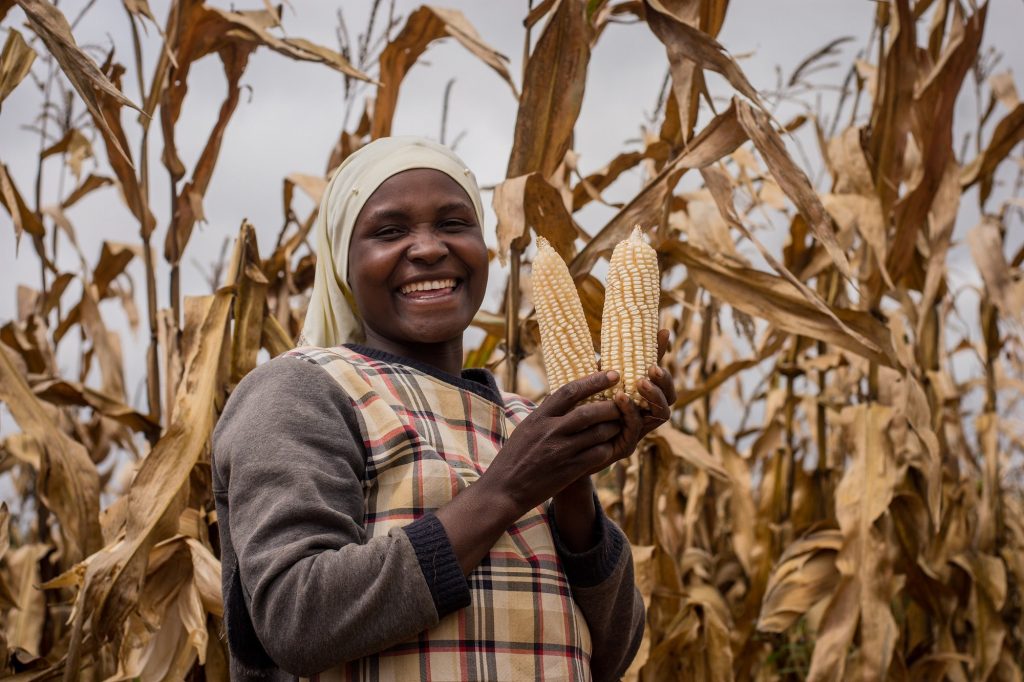
Across Africa, women play an indispensable role in agriculture, contributing significantly to food production and rural development. Their contributions are the backbone of agricultural economies, yet they face numerous barriers that hinder their full potential. Data reveals their pivotal position in ensuring food security and driving economic growth. Women constitute 40% to 50% of the agricultural labour force in Sub-Saharan Africa. In countries like Uganda and Ethiopia, this proportion climbs to over 70%, underscoring their critical involvement. Despite this, structural inequalities persist, limiting their access to resources and opportunities.
Women dominate smallholder farming, with approximately 70% of Africa’s smallholder farmers being women. These farmers produce up to 80% of the continent’s food. Their focus tends to be on subsistence crops such as maize, millet, cassava, and beans. These staples are the primary food sources for millions of households across the continent. In addition to crop production, women are also heavily involved in post-harvest activities, including storage, processing, and marketing. These roles ensure that food reaches both rural and urban markets, sustaining families and communities.
Despite their significant contributions, women face systemic barriers that limit their productivity and economic potential. One of the most significant challenges is access to land. Although women contribute most of the agricultural labour, they own less than 20% of the agricultural land. In patriarchal systems, land ownership is often tied to male inheritance and control, leaving women reliant on male family members for access to land. This lack of ownership restricts their ability to secure loans or invest in agricultural improvements.
Access to financial resources is another critical challenge. Women receive only 10% of the credit extended to smallholder farmers in Africa. This financial exclusion reduces their ability to purchase quality seeds, fertilisers, and farming equipment, which are essential for improving yields. The gender gap in access to agricultural technologies further compounds this problem. Women are 20% to 30% less likely than men to adopt improved technologies due to limited access to extension services, training, and information. As a result, their productivity lags behind their male counterparts, even when they cultivate similar plots of land.
Market participation is another area where women face significant disparities. Many women lack the means to access formal markets and are often confined to local or informal markets where prices are lower. This limitation affects their income and reduces their ability to reinvest in their farming operations. Additionally, cultural and social norms often restrict women’s mobility, further limiting their ability to expand their market reach.
Despite these challenges, studies show that addressing gender disparities in agriculture could have transformative effects. According to the Food and Agriculture Organisation (FAO), equal access to resources could increase agricultural yields by up to 30%. This boost would not only improve food security but also contribute to broader economic growth. For example, closing the gender gap in agricultural productivity could lift an estimated 100 to 150 million people out of hunger globally.
Programs and policies aimed at empowering women in agriculture have shown promising results. In Malawi, for instance, women’s access to improved maize seeds and fertilisers through targeted subsidies increased their yields by 20%. Similarly, in Kenya, the introduction of women-friendly technologies, such as lightweight ploughs and efficient irrigation systems, has enabled women to cultivate larger plots of land with less physical strain. These examples highlight the importance of tailored interventions that address the unique needs and constraints faced by women farmers.

Education and capacity building are also crucial for enhancing women’s contributions to agriculture. Literacy programs and agricultural training have been shown to improve women’s decision-making abilities and technical skills. In Nigeria, for instance, women who participated in extension training programs reported a 15% increase in their farm productivity compared to those who did not receive training. Additionally, cooperative groups and associations provide women with platforms to pool resources, share knowledge, and access collective bargaining power. These groups have been particularly effective in countries like Tanzania and Rwanda, where women’s cooperatives have successfully negotiated better prices for their produce and improved access to markets.
Social norms and cultural practices also need to be addressed to unlock the full potential of women in agriculture. Gender-sensitive policies and programs that challenge traditional roles and promote gender equality can have a profound impact. For example, community-led initiatives that engage men as allies in promoting women’s rights have been successful in shifting attitudes and reducing resistance to women’s empowerment. These initiatives are particularly important in rural areas, where cultural norms are often deeply entrenched.
Investments in infrastructure and technology are equally vital for improving women’s agricultural productivity. Access to affordable irrigation systems, mechanisation, and storage facilities can significantly reduce the labour burden on women and increase their efficiency. Mobile technology also presents new opportunities for women farmers. Mobile platforms can provide women with access to weather forecasts, market prices, and agricultural advice, helping them make informed decisions. In countries like Ghana and Uganda, mobile-based initiatives have enabled women farmers to connect directly with buyers, reducing the role of middlemen and increasing their profits.
Climate change poses additional challenges for women in agriculture. Women are more vulnerable to the effects of climate change due to their reliance on rain-fed agriculture and limited access to adaptive resources. Droughts, floods, and erratic weather patterns disproportionately affect women farmers, reducing their yields and threatening food security. Building climate resilience through training and access to climate-smart technologies is therefore critical. In Ethiopia, for example, women farmers who adopted climate-resilient practices, such as agroforestry and soil conservation, reported higher yields and improved household incomes.
Empowering women in agriculture also has broader social and economic benefits. Studies have shown that women are more likely than men to invest their incomes in their families’ health, education, and nutrition. When women’s incomes increase, the benefits ripple through entire communities, improving living standards and fostering economic development. Moreover, women’s participation in decision-making processes, both at the household and community levels, leads to more inclusive and equitable outcomes.
In a 2022 report by Oxfam, Zainab Hassan, a farmer from Sudan, noted, “When women are given access to the same resources as men, the entire community thrives. I’ve seen it firsthand.” Her words highlight the tangible impact of equitable resource distribution. Similarly, Mary Wambui, a Kenyan smallholder farmer, shared her experience during a focus group discussion in 2021: “Learning about irrigation and pest control techniques transformed my farm. I now produce more and can afford to send my children to school.”
Data-driven policy interventions are essential for addressing the challenges faced by women in agriculture. Governments and development organisations must prioritise gender-disaggregated data collection to better understand the needs and contributions of women farmers. This data can inform targeted policies and programs that address specific barriers, such as land tenure reforms, financial inclusion initiatives, and access to agricultural extension services.
Regional and international cooperation also play a crucial role in advancing gender equality in agriculture. Organisations such as the African Union and the United Nations have launched initiatives to support women farmers and promote sustainable agricultural practices. For instance, the African Union’s Malabo Declaration on Accelerated Agricultural Growth and Transformation recognises the need for gender-sensitive policies and commits member states to improving women’s access to resources and services.
The private sector has a significant role to play as well. Agribusinesses can create inclusive value chains that provide opportunities for women at every stage of the agricultural process, from production to processing and marketing. Public-private partnerships can also drive innovation and investment in technologies that address the specific challenges faced by women farmers.
Disclaimer: The views and opinions expressed in this article are those of the author and do not necessarily reflect the official policy or position of My Afrika Magazine. All content provided is for informational purposes only and should not be construed as professional advice. My Afrika Magazine makes no representations regarding the accuracy, completeness, or reliability of the information contained in this article. Readers are encouraged to independently verify any facts presented. My Afrika Magazine assumes no liability for any losses, damages, or other consequences that may arise from reliance on the information provided in this article.


